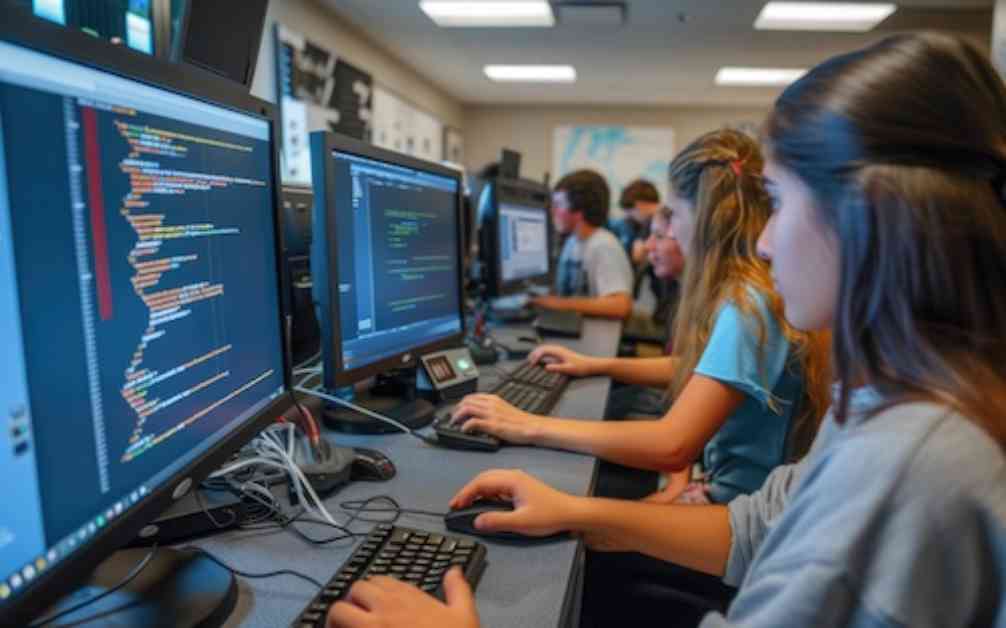Michigan is taking steps to address equity issues in computer science education by expanding high school computer science classes across the state. With the passage of a bill requiring all public high schools to offer a computer science course by the 2027-28 school year, Michigan aims to ensure that students have access to essential skills for higher education and the modern workforce.
Weaam AlAliyi, a rising junior at Dearborn Public Schools’ Virtual K-12 school, has already benefitted from taking computer science courses in high school. She believes that these courses are crucial in preparing students for the digital world and sees the value in gaining computer science skills early on.
The bill, which recently passed the state House and is on its way to the Senate, has received bipartisan support, highlighting the recognition of the importance of preparing students for future computer science positions in Michigan and beyond. Cheryl Wilson, a computer science consultant at the Michigan Department of Education, emphasizes the need to align the courses with state standards to ensure that students are equipped with the necessary knowledge and skills.
The expansion of computer science classes comes at a time when Michigan faces a significant demand for computing jobs, with an average of 14,328 open positions each month in 2023 and an average salary of $96,702. By providing students with the opportunity to learn about AI functions, app development, data analysis, and internet security, the bill aims to prepare them for lucrative career opportunities in the tech industry.
However, challenges remain in ensuring equitable access to computer science education. While the bill is expected to have minimal costs for the state, schools without existing computer science classes may struggle to implement the new requirement. Robert McCann, executive director of the K-12 Alliance, emphasizes the importance of providing schools with the necessary resources, including qualified teachers and equipment, to support the implementation of the courses.
One of the key obstacles to equity in computer science education is technology access. Not all students have the same level of access to technology at home, which can impact their ability to participate in computer science courses. To address this issue, grants have been provided to improve technology access in homes during the pandemic, with the hope of giving more students the resources they need to study computer science.
For schools that are unable to offer the course in-person, online options such as Michigan Virtual can be utilized. Rep. Carol Glanville, the bill’s sponsor, suggests that existing online computer science programs like Code.org can help offset access issues and provide students with alternative learning opportunities.
While the bill represents a step in the right direction for expanding access to computer science education, concerns remain about the quality of instruction. Aman Yadav, a professor of computing education at Michigan State University, warns that under-resourced schools may struggle to offer quality computer science courses due to a lack of certified staff. He emphasizes the importance of ensuring that teachers are adequately trained to teach computer science effectively.
Racial and gender disparities in computer science enrollment also pose a significant challenge to equity in education. Research indicates that women and Black students are underrepresented in computer science courses, highlighting the need for targeted efforts to increase diversity in the field. By addressing disparities in enrollment and success rates, Michigan can work towards creating a more inclusive and equitable computer science education system.
As Michigan continues to expand access to computer science education, it is essential to consider how schools can support students from diverse backgrounds and ensure that all students have the opportunity to pursue careers in technology. By investing in teacher certification, offering classes at a younger age, and addressing disparities in enrollment, Michigan can take steps towards creating a more equitable and inclusive computer science education system for all students.

